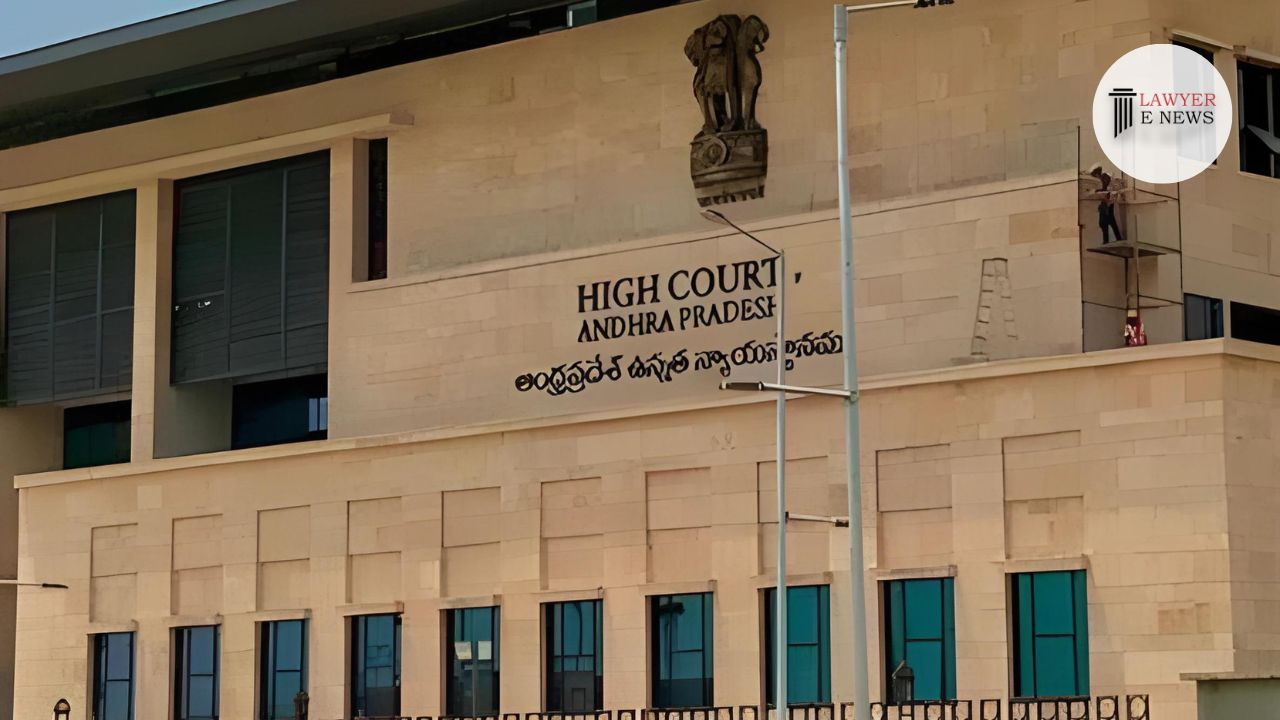-
by Admin
15 February 2026 5:35 AM



Andhra Pradesh High Court, in Kandati Sarada v. Godthi Satish Chowdary & Others (Appeal Suit No. 433 of 2010), dismissed an appeal challenging the trial court’s decree for the recovery of money based on a promissory note. The Court upheld the presumption of consideration under Section 118 of the Negotiable Instruments Act, 1881, ruling that the appellant had failed to rebut this presumption with convincing evidence. The case sets a significant precedent on the burden of proof in cases involving promissory notes.
The plaintiff, Godthi Satish Chowdary, filed a suit for the recovery of Rs. 4,46,519/- based on a promissory note allegedly executed by the defendants (Kandati Sarada and others) on February 14, 2001, wherein they borrowed Rs. 3,00,000/- at 24% interest per annum. The trial court, after evaluating the evidence, decreed the suit in favor of the plaintiff, awarding recovery against the first defendant (Kandati Sarada), while dismissing the suit against the second defendant for default.
The appellant (first defendant) filed the appeal, contending that the promissory note was fabricated and executed under coercion involving blank promissory notes issued for a separate transaction.
The key legal issues before the court were:
Whether the promissory note in question was valid, executed, and supported by consideration.
Whether the trial court's decree needed interference based on the appellant’s defense of fabrication and lack of consideration.
The appellant argued that the promissory note was fabricated by the plaintiff in collusion with others, using blank notes taken from her husband, who had previously borrowed Rs. 50,000/- from a financier. The appellant also claimed that the loan had been partially repaid and that the blank notes were never returned, leading to their misuse in this case.
"Presumption of Consideration Stands Unrebutted"
The court emphasized that Section 118 of the Negotiable Instruments Act places a statutory presumption of consideration once the execution of a promissory note is either admitted or proved. Justice T. Mallikarjuna Rao observed, "Once execution is proved, the presumption under Section 118 of the N.I. Act that it is supported by consideration automatically applies." The burden then shifts to the defendant to rebut this presumption.
In this case, the appellant failed to present sufficient evidence to disprove the passing of consideration or demonstrate that the promissory note was fabricated. The court noted that the testimonies of the plaintiff’s witnesses, including the scribe and attestor of the note, were consistent and credible despite minor discrepancies in recollection, which the court attributed to the passage of time.
The appellant highlighted inconsistencies in the testimonies of the plaintiff’s witnesses regarding the time and location of the transaction. However, the court held that such discrepancies were minor and did not affect the overall credibility of the witnesses. Citing legal precedent, the court stated, "Minor inconsistencies in witness testimonies do not discredit the overall credibility of witnesses" and ruled that these lapses in memory were not sufficient to invalidate the promissory note.
The court further ruled that the appellant’s failure to take legal action against the financiers for the alleged retention of blank promissory notes undermined her defense. The court found no substantive evidence connecting the financiers to the plaintiff’s claim.
The court reiterated that the burden of proof lay with the appellant to disprove the statutory presumption of consideration. Referring to prior judgments, the court ruled that the appellant failed to produce adequate rebuttal evidence. The defendant’s claim that the note was fabricated did not shift the evidential burden back to the plaintiff.
The Andhra Pradesh High Court confirmed the trial court’s judgment, ruling that the promissory note was valid and binding on the appellant. The court dismissed the appeal, finding no grounds for interference with the lower court's decree. The court held that the appellant had failed to disprove the existence of consideration, and the statutory presumption of consideration under Section 118 of the Negotiable Instruments Act remained intact.
Date of Decision: October 21, 2024
Kandati Sarada v. Godthi Satish Chowdary & Others
